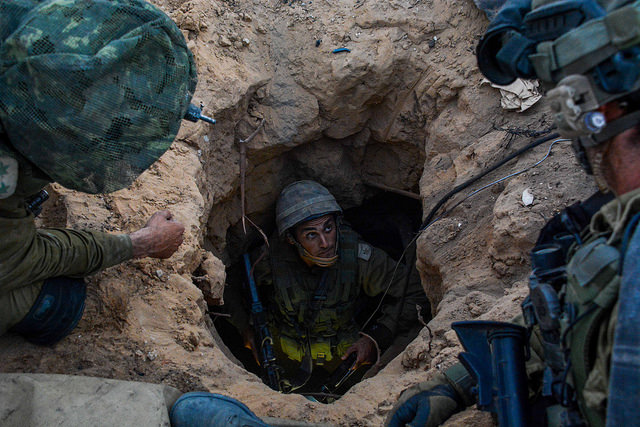IN THE MEDIA
Hamas’ failed strategy
August 19, 2014 | Glen Falkenstein

By Glen Falkenstein
This morning, Israel and Hamas agreed to a 24-hour extension of a five-day truce to negotiate a longer-lasting ceasefire, following weeks of conflict. Israel wants the Gaza Strip to be demilitarised, while Hamas wants unrestricted movement in and out of Gaza, no restrictions on goods coming into the Strip and new construction of sea and airports.
In a recent Strategist post, Simon Longstaff argues that Hamas were, to a degree, effective in their provocation of Israel, while I argue that Hamas’ strategy succeeded in degrading its own moral and political authority and undermining its objectives. Hamas’ objectives pre-dated the recent conflict. Hamas’ strategy included rocket attacks not targeting Israeli military installations, but aimed at civilian centres. Hamas deliberately placed its artillery in populated areas and employed a ‘human shield’ of civilians and civilian infrastructure in Gaza to protect both its forces and their weapons.
Hamas’ tactics have brought international attention to its deliberate disdain for civilians in warfare and undermined its calls for lifting security restrictions. Sreenivasan Jain, a journalist reporting from Gaza, recently went public about his fear of ‘possible reprisal by Hamas’, asking ‘how long do we self-censor because of the fear of personal safety in return for not telling a story that exposes how those launching rockets are putting so many more lives at risk’. Hamas’ charter explicitly calls for the destruction of Israel and demands that Muslims ‘fight the Jews… until the Jews hide behind rocks and trees’.
It’s widely acknowledged that Hamas, which is listed as a terrorist organisation in many countries, can’t act with impunity in endangering the lives of civilians in both Gaza and Israel; hence the widespread support for the Strip being demilitarised.
In 2007, following Hamas’ violent seizure of power in Gaza, Israel imposed restriction on goods to the territory in order to prevent weapons and materials used in warfare being smuggled in. Among the goods let through by Israel was aid provided by the international community in the form of cement, an estimated 800,000 tonnes of which has been used by Hamas to construct dozens of far-reaching tunnels.
Many of those tunnels uncovered during the recent conflict were used by terrorists to conduct cross-border attacks to target Israeli civilians. Resources provided by the international community, including UN buildings, have been used to store rockets, and have even covered entrances to the tunnels.
The use of civilian infrastructure and resources by Hamas before and during this conflict has meant that any demand for easing restrictions need take into account the prospect of future abuse by Hamas. The abolition of security procedures in place, in addition to the unrestricted use of a seaport or airport by Hamas, would likely result in the organisation re-arming itself and threatening pursuit of its stated goal—the violent destruction of Israel.
By committing to goals which aren’t practical in light of its track record, Hamas made a strategic error that has undermined its legitimacy in Gaza and the West Bank. The Palestinian leadership, including Mahmoud Abbas, has publicly condemned Hamas, which broke multiple ceasefires during the conflict by firing rockets into Israel after truces were arranged.
It has been speculated that the Palestinian National Authority (PNA) will play a role in monitoring the Rafah border crossing with Egypt. There’s no doubt the PNA and Fatah, both of which are viewed more favourably in the eyes of the international community, will seek to expand their influence in Gaza following Hamas’ strategic failures.
It’s not beyond the PNA, nor the UN or Australia to play a constructive role in easing restrictions currently in place and bettering the welfare of the people of Gaza. Those efforts must be accompanied by a genuine commitment to ensure Hamas cannot re-arm, nor endanger the lives of innocent civilians in Israel and Gaza.
Glen Falkenstein is a policy analyst at the Australia/Israel and Jewish Affairs Council.
Tags:





